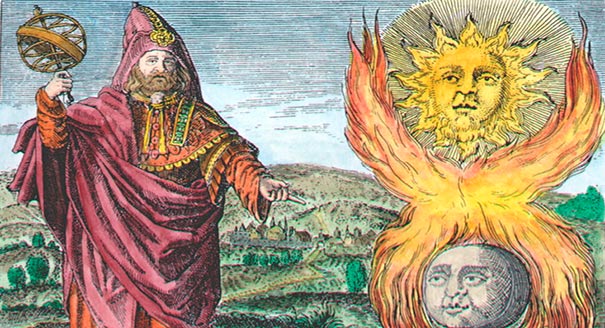It is summer, the Russian public is watching World Cup, and is not interested in hearing bad news. This is a major reason why the curious story of Valentin Yumashev, the Kremlin aide who never went away, has received a lot of journalistic attention. But the Yumashev story is a more than a mere curiosity. It tells us a lot about how the Putin regime works and still remains—even though it does not want to tell us so—very much the creature of the Yeltsin Kremlin of the 1990s.
 Valentin Yumashev. Source: Vova Zhabrikov / URA.RU / ТАSSYumashev began his career as a journalist and became chief of staff to President Boris Yeltsin in 1997-98. He also married Yeltsin’s younger daughter, Tatyana, and of course worked alongside another Yeltsin aide, Vladimir Putin. After Putin became president, Yumashev’s name began to vanish from the public domain, but it was recently confirmed that he has kept a job as an unpaid presidential adviser to Putin since 2000. Kremlin press secretary Dmitry Peskov confirmed that Yumashev had worked for Putin ever since he helped Yeltsin write the resignation speech that he delivered on New Year’s Eve, 1999 and in which he stepped down to ensure Putin’s succession.
Valentin Yumashev. Source: Vova Zhabrikov / URA.RU / ТАSSYumashev began his career as a journalist and became chief of staff to President Boris Yeltsin in 1997-98. He also married Yeltsin’s younger daughter, Tatyana, and of course worked alongside another Yeltsin aide, Vladimir Putin. After Putin became president, Yumashev’s name began to vanish from the public domain, but it was recently confirmed that he has kept a job as an unpaid presidential adviser to Putin since 2000. Kremlin press secretary Dmitry Peskov confirmed that Yumashev had worked for Putin ever since he helped Yeltsin write the resignation speech that he delivered on New Year’s Eve, 1999 and in which he stepped down to ensure Putin’s succession.
Nowadays, a day does not go by in which Russian television does not curse the “wild Nineties” of the Yeltsin era. The consensus is still that, in Putin’s own words, Russia’s leaders “wreaked mayhem in those years.”
Yet Putin is also a child of that dangerous era and seasoned political survivor. The experience of navigating those difficult times has served him well, taking him from perestroika-era Leningrad to the administration of Anatoly Sobchak to Yeltsin’s Kremlin. He still speaks the somewhat vulgar language of common sense that was characteristic of that epoch. He still relies on old friends from the Soviet era. It is as though a group of them went out of town 30 years ago one day for a barbecue in the forest and have ended up running the country.
The group of survivors, led by Putin, to whom Yeltsin entrusted power on the night of January 1, 2000, are mostly still there. They have several things in common. Despite what they may say, they are globalists. They fear that Russia’s global isolation would threaten their survival. Just as in 1999, the new transition process that is underway with Putin’s fourth presidential term is not just a domestic Russian affair, but an international one, shaped by Russia’s role in the world and the world order. The Kremlin is getting ready for the process of grooming Putin’s successor in part by building bridges with the rest of the world. The July meeting with Donald Trump is only the beginning.
Many commentators understood that the strangely timed announcement about Yumashev was intended to bury bad news—such as the revoking of the accreditation of the Moscow School of Social and Economic Sciences (also known as Shaninka), the hunger strike of Ukrainian film maker Oleg Sentsov in a Russian prison, and the unveiling of unpopular pension reform. But if pension reform was unavoidable, then the detention of Sentsov and the assault on Shaninka reveal another side of the ruling regime.
The men of the Nineties showed an unexpected capacity for aggression in the 2000s. It is not so much inflicting violence as allowing it to float in the environment. When these men go after Shaninka, or earlier the European University in St Petersburg, it is not so much because it is in their direct interests—they are demonstrating that they can.
The Center is not interested in strategy at the moment. Instead, there is merely a demand from the top for officials to show force, to attack anything that gets in the way. The System first creates an emergency situation, then responds to it with bans, confiscations, and seizures.
As the men in the Kremlin start to prepare for the next round of of “Operation Successor,” some of them still practice two skills they learned in the Nineties—the art of survival and the application of political violence. But the violence is getting cruder, the sophistication is gone.
The experience that they gained back then—and in managing the transition from Yeltsin to Putin in 1999 in particular—is invaluable. Putin still needs people from the Nineties like Yumashev. The System succeeds so as long as it remains sophisticated. However, this Kremlin court has no time for young pretenders. A contemporary equivalent of Putin, the dare-devil technocrat, would have little prospect of success in the modern Putin era. And Yumashev, a product of more meritocratic times, would have even less of a chance.



